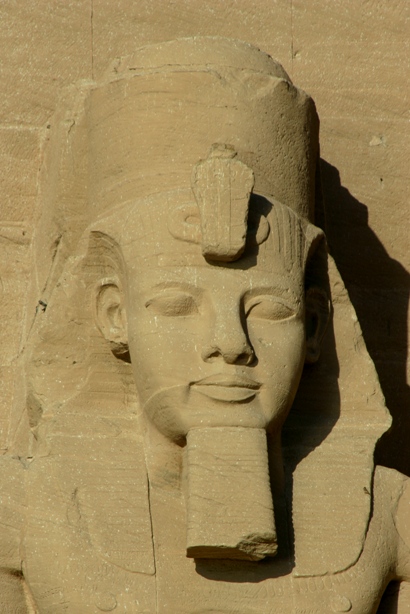Lament for the Makers |
William Dunbar 1465–1520? |
I THAT in heill was and gladnèss
Am trublit now with great sickness
And feblit with infirmitie:—
Timor Mortis conturbat me.
Our plesance here is all vain glory,
This fals world is but transitory,
The flesh is bruckle, the Feynd is slee:—
Timor Mortis conturbat me.
The state of man does change and vary,
Now sound, now sick, now blyth, now sary,
Now dansand mirry, now like to die:—
Timor Mortis conturbat me.
No state in Erd here standis sicker;
As with the wynd wavis the wicker
So wannis this world’s vanitie:—
Timor Mortis conturbat me.
Unto the Death gois all Estatis,
Princis, Prelatis, and Potestatis,
Baith rich and poor of all degree:—
Timor Mortis conturbat me.
He takis the knichtis in to the field
Enarmit under helm and scheild;
Victor he is at all mellie:—
Timor Mortis conturbat me.
That strong unmerciful tyrand
Takis, on the motheris breast sowkand,
The babe full of benignitie:—
Timor Mortis conturbat me.
He takis the campion in the stour,
The captain closit in the tour,
The lady in bour full of bewtie:—
Timor Mortis conturbat me.
He spairis no lord for his piscence,
Na clerk for his intelligence;
His awful straik may no man flee:—
Timor Mortis conturbat me.
Art-magicianis and astrologgis,
Rethoris, logicianis, and theologgis,
Them helpis no conclusionis slee:—
Timor Mortis conturbat me.
In medecine the most practicianis,
Leechis, surrigianis, and physicianis,
Themself from Death may not supplee:—
Timor Mortis conturbat me.
I see that makaris amang the lave
Playis here their padyanis, syne gois to grave;
Sparit is nocht their facultie:—
Timor Mortis conturbat me.
He has done petuously devour
The noble Chaucer, of makaris flour,
The Monk of Bury, and Gower, all three:—
Timor Mortis conturbat me.
The good Sir Hew of Eglintoun,
Ettrick, Heriot, and Wintoun,
He has tane out of this cuntrie:—
Timor Mortis conturbat me.
That scorpion fell has done infeck
Maister John Clerk, and James Afflek,
Fra ballat-making and tragedie:—
Timor Mortis conturbat me.
Holland and Barbour he has berevit;
Alas! that he not with us levit
Sir Mungo Lockart of the Lee:—
Timor Mortis conturbat me.
Clerk of Tranent eke he has tane,
That made the anteris of Gawaine;
Sir Gilbert Hay endit has he:—
Timor Mortis conturbat me.
He has Blind Harry and Sandy Traill
Slain with his schour of mortal hail,
Quhilk Patrick Johnstoun might nought flee:—
Timor Mortis conturbat me.
He has reft Merseir his endite,
That did in luve so lively write,
So short, so quick, of sentence hie:—
Timor Mortis conturbat me.
He has tane Rowll of Aberdene,
And gentill Rowll of Corstorphine;
Two better fallowis did no man see:—
Timor Mortis conturbat me.
In Dunfermline he has tane Broun
With Maister Robert Henrysoun;
Sir John the Ross enbrast has he:—
Timor Mortis conturbat me.
And he has now tane, last of a,
Good gentil Stobo and Quintin Shaw,
Of quhom all wichtis hes pitie:—
Timor Mortis conturbat me.
Good Maister Walter Kennedy
In point of Death lies verily;
Great ruth it were that so suld be:—
Timor Mortis conturbat me.
Sen he has all my brether tane,
He will naught let me live alane;
Of force I man his next prey be:—
Timor Mortis conturbat me.
Since for the Death remeid is none,
Best is that we for Death dispone,
After our death that live may we:—
Timor Mortis conturbat me.
GLOSSARY: heill] health. bruckle] brittle, feeble. slee] sly. dansand] dancing. sicker] sure. wicker] willow. wannis] wanes. mellie] mellay. sowkand] sucking. campion] champion. stour] fight. piscence] puissance. straik] stroke. supplee] save. makaris] poets. the lave] the leave, the rest. padyanis] pageants. anteris] adventures. schour] shower. endite] inditing. fallowis] fellows. wichtis] wights, persons. man] must. dispone] make disposition.
I first came across this poem in THE WORM OUROBOROS by E.R. Eddison, in the scene where, having wrastled the mighty Gouldry Blasco for the lordship of the planet Mercury, the King of Witchland, Gorice XI is fallen and lies in state in the presense chamber of the Red Foliot, who reads Dunbar’s Lament. He is interrupt at about line 45 when Corinius and the sons of Corsus are dicing during the funeral, and Corinius accuses Gallandus son of Corsus of cheating, and smites him on the jaw with the dice box. This poem also shows up in my wife’s novel CHILDREN OF PROSPERO, in the mouth of the morbid and sinister son of the magican, Erasmus Prospero, whose black wand contains nothing but the magic of withering and decaying. He recites it when he slays armies, turning them instantly to dust.
Who says science fiction does not introduce readers to high culture?
I always did feel sort of sorry for the babe full of benignity; and Sir Mungo Lockart of the Lee. Alas, Poor Mungo!


